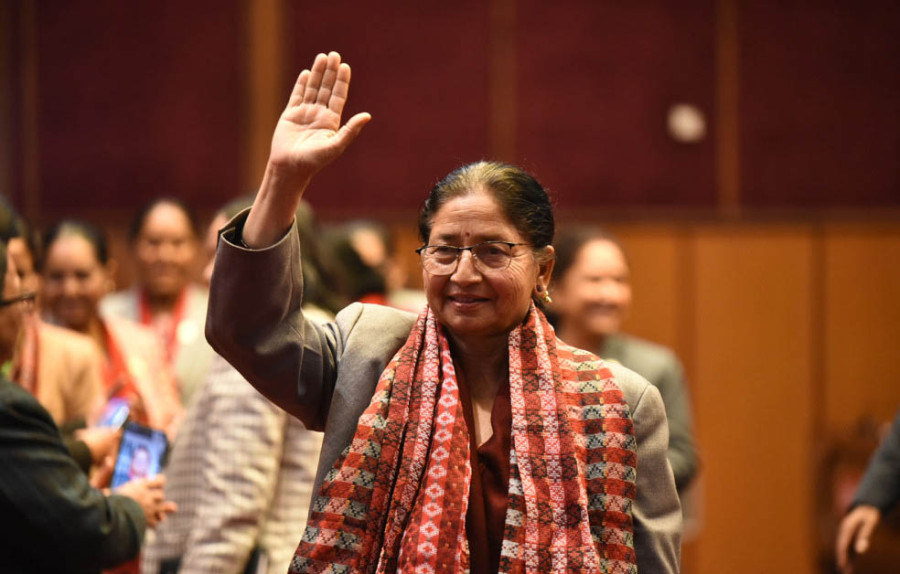Politics
Agreement on smooth lawmaking falls through before it takes effect
National Assembly vice-chair disowns the deal citing that the agreement had been tweaked without notice.
Binod Ghimire
An agreement made by the chiefs and deputies of the federal parliament and the provincial assemblies to make parliamentary functions smooth and effective has been mired in controversy even before it comes into force.
After two days of discussions, the Speakers and deputy Speakers of the House of Representatives and seven provincial assemblies and the chair and vice-chair of the National Assembly had forged 12 different agreements for joint efforts in making the federal parliament and the provincial assemblies more productive. However, Urmila Aryal, vice-chairperson of the National Assembly, went public against the deal saying it had undermined the status of the upper house.
On Sunday, making public the points of agreement after the discussions on Friday and Saturday, Padam Prasad Pandey, secretary at the lower house, said a mechanism led by deputy Speaker of the House of Representatives with vice-chairperson of the upper house and deputy Speakers of the provincial assemblies as members will be formed for the implementation of the constitutional rights of women.
Aryal was quick to oppose it saying that the decision was amended without her knowledge. Issuing a statement, she claimed that as per the agreement, such a mechanism would be jointly led by the deputy Speaker of the lower house and the National Assembly vice-chair.
“What caused the twist in the agreement without informing? I strongly condemn the act,” Aryal stated, refusing to be a part of the mechanism. “This is a clear case of disrespect.”
Aryal has demanded an answer from Speaker Devraj Ghimire and Ganesh Timilsina, chairperson of the National Assembly, on the matter. While Ghimire and Timilsina were elected on UML tickets, Aryal was a leader of the CPN (Maoist Centre) before her election.
She, however, hasn’t objected to the other 11 points of the agreement. As per the deal, the chiefs and deputies have demanded that the respective governments hold proper consultation with the Speakers and chairs of the federal and provincial parliaments about the House business and inform them in advance about the workload the federal parliament and provincial assemblies will have in a particular session. The executive holds the prerogative to give the business to the House and the assemblies. Though the Business Advisory Committee, which has the law minister as a member, discusses the House agenda for the particular meeting, there is no practice of prior information.
Lack of adequate business from the government is one of the reasons why the Houses are not effective. “Collaborate in starting the practice of assessing the need for a particular law prior to its endorsement and evaluate if it has been implemented effectively after the approval from Parliament,” reads one of the points in the agreement.
The leaders of the legislative bodies have also agreed to draw the government’s attention for the implementation of the recommendations by the Federalism Implementation Study and Monitoring Committee of the Assembly. After months of study, the committee had made a 99-point recommendation in 12 different themes.
Though the upper chamber, after endorsing the report of the special panel in November last year, directed the government to implement it, no steps to this effect have been taken yet. Among others, the committee had directed the government to do away with 10 of the 25 ministries in the federal government and limit the number of provincial ministries to 10 percent of the total strength of that particular assembly.
Taking steps towards formulating laws necessary to strengthen federalism is another point of the agreement. Around eight years since the promulgation of the constitution, the federal government is yet to promulgate crucial laws like the federal Civil Service Act and the federal Education Act, among others.
“Drawing the attention of the government to revisit the order of precedence for the deputy Speakers of the provincial assemblies,” reads another point in the agreement. They are unhappy to be ranked tenth.




 13.12°C Kathmandu
13.12°C Kathmandu














